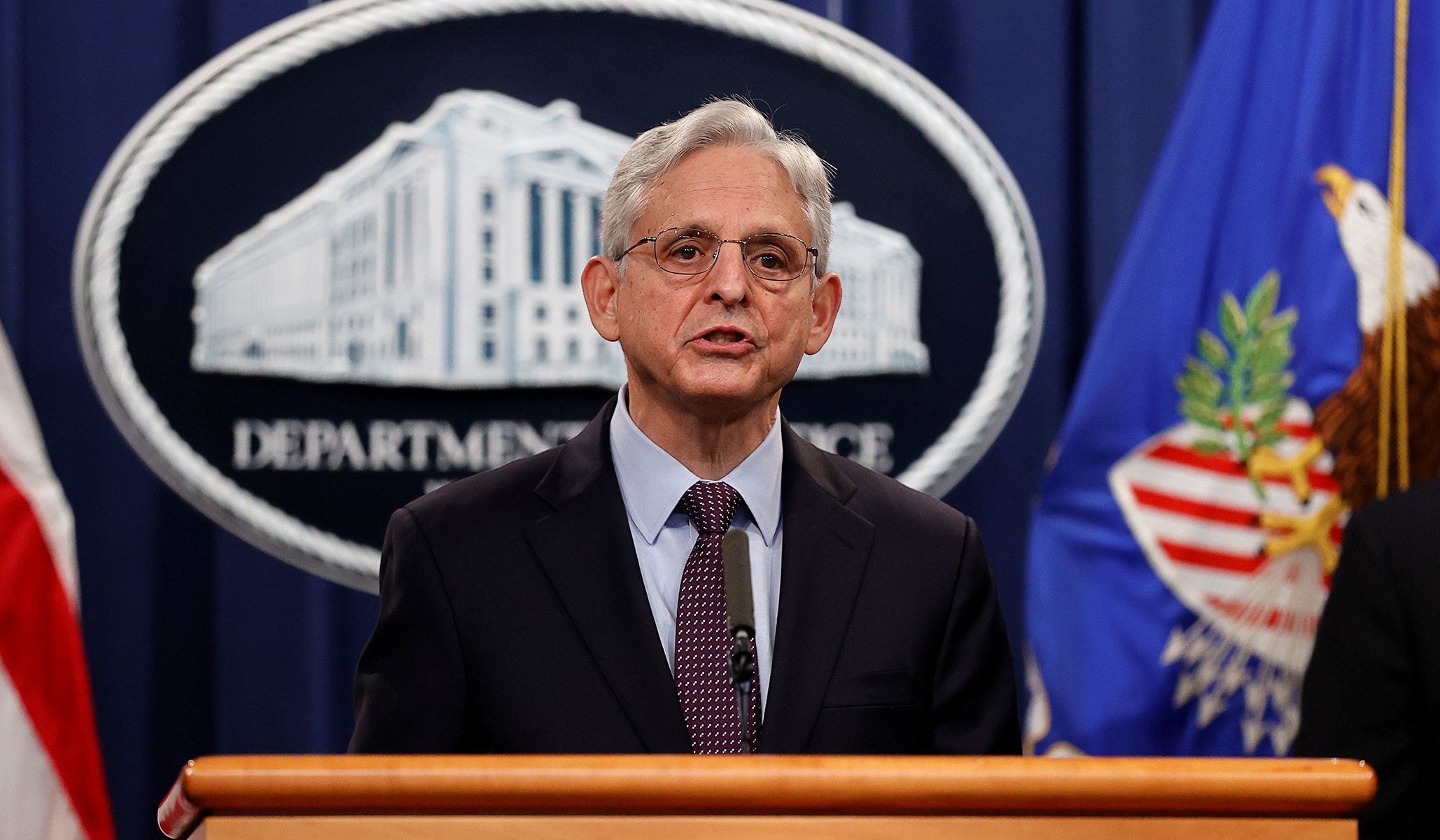
Garland’s memo, issued in October, instructed “the Federal Bureau of Investigation, working with each United States Attorney, to convene meetings with federal, state, local, Tribal, and territorial leaders in each federal judicial district,” in order “to facilitate the discussion of strategies for addressing threats.”
The attorney general’s directions were inspired in large part by a letter from the National School Boards Association (NSBA) citing a number of incidents and arguing that some of them verged on domestic terrorism.
Both the incidents themselves and the label have come under significant scrutiny. Sixteen of the 24 examples listed by the NSBA constituted tense verbal altercations, which did not include physical threats. And the remaining examples, if criminal, fall squarely under local and state jurisdiction. One of the instances pointed to by the NSBA was the arrest of Scott Smith, the father of a sexual-assault victim in Loudoun County, Va. None of these, critics say, fall under the category of “domestic terrorism,” or even fit within the Bureau’s purview.
The NSBA has apologized for the letter, having seen significant membership losses as a result of it. Since its release, 17 state school-board associations have left the NSBA and 27 have publicly condemned it.
Adam Lee is a former special agent in charge of the FBI’s Richmond division and national executive for the FBI’s public-corruption and civil-rights programs. He oversaw the FBI’s involvement in the Unite the Right Rally in Charlottesville, Va., in 2017 and even interviewed with former president Donald Trump to replace James Comey as director of the FBI.
Lee called the memo “pretty rare,” in an interview with National Review, noting that in his long tenure at the Bureau, he only saw a couple of items like it. Of even more concern to Lee was the fact that “the only way that [the memo] is hitting FBI jurisdiction at all is under the rubric of domestic terrorism.” According to Lee, the bureau’s domestic-terrorism program, which is held within its counterrorism division, includes resources and permission structures that he’d be concerned to see brought to bear against Americans.All Our Opinion in Your Inbox
“The counterterrorism division’s incredible capabilities were built to target foreign terrorist organizations under Title 50, which is all the PATRIOT Act enabling statutes. It is a juggernaut and has saved countless American lives,” explained Lee.
But, he added, “it is a scary prospect to turn those capabilities inward on U.S. persons. The Bureau is bound by the constitutional protections which all law enforcement in America is rightly constrained by.”
Lee doesn’t “have concerns that FBI professionals will run out and start violating core constitutional principles,” but he submits that “the worrisome dimension of tagging Americans as domestic terrorists is the scrutiny it brings and the resulting data collection and assessments of the counterterrorism division. Americans should be confident that, absent an existing predicate of criminality, the government has no interest in their personal activities.”
Lee’s concerns were echoed by Bill Corbett, a retired supervisory agent who worked on national security and criminal matters for the Bureau. He told National Review that “it doesn’t seem like, substantively, there’s really anything. I don’t think that anyone’s seen any incidents of actual organized violence for political ends that might fit in that rubric of terrorism.”
Corbett was particularly surprised that even after the NSBA apologized for its letter, Garland declined to back down from his memo and the instructions therein during hearings on Capitol Hill. In rebuffing calls to rescind his memo, Garland claimed it was only partially motivated by the letter and cited unspecified media reports as the other motivator. Corbett emphasized the ways in which the memo might further undermine confidence in the FBI and federal law enforcement more generally, arguing that it constituted a betrayal of trust and an “encroachment into the public square, into First Amendment spaces, and we’re doing it because of safety and security.”
“It turns out that was sort of an empty, politically-loaded claim,” he observed, calling it a “black eye” for Garland’s DOJ that “quickly kind of collapsed in on itself.”
Corbett was, however, encouraged by reporting from the Daily Caller that FBI director Christopher Wray had told a group of former agents that the FBI would stay in its lane and refrain from any behavior that might have a chilling effect on speech about educational policy. The Bureau has, however, created a “threat tag” for data collection on threats against schools and officials, but Lee and Corbett both downplayed them as direct threats to Americans’ civil liberties, describing them as a sorting mechanism.
The downstream effects, however, could be somewhat more pronounced. the tags are “a mechanism just for general bookkeeping, passively,” said Corbett. “But it also has an ability of kind of chilling people because this isn’t the Department of Agriculture here, this is the FBI,” an agency capable of investigating and jailing Americans. As such, Corbett argues that anything, even something seemingly innocuous like creating a threat tag, “has to pass the sniff test.”
Lee concurred, calling the tags themselves a “passive way of compiling data around a threat issue to determine its scope,” but he also acknowledged that “it is fair to call the creation of a tag follow-through and, depending on what the data reveal to FBI analysts, it could foretell further steps for the FBI.”
He also expressed concerns over not just the appearance of political bias, but its consequences on Bureau behavior. “It is essential that FBI leadership remain politically agnostic and actively resist the pressures of political actors within government. The vast majority of my career was spent in field assignments; the special agents I worked alongside for nearly a quarter-century are the most honorable among us,” said Lee.
And yet, he nevertheless observed, “even those street agents with the highest integrity, however, are still working a mission dictated to them by leadership.”